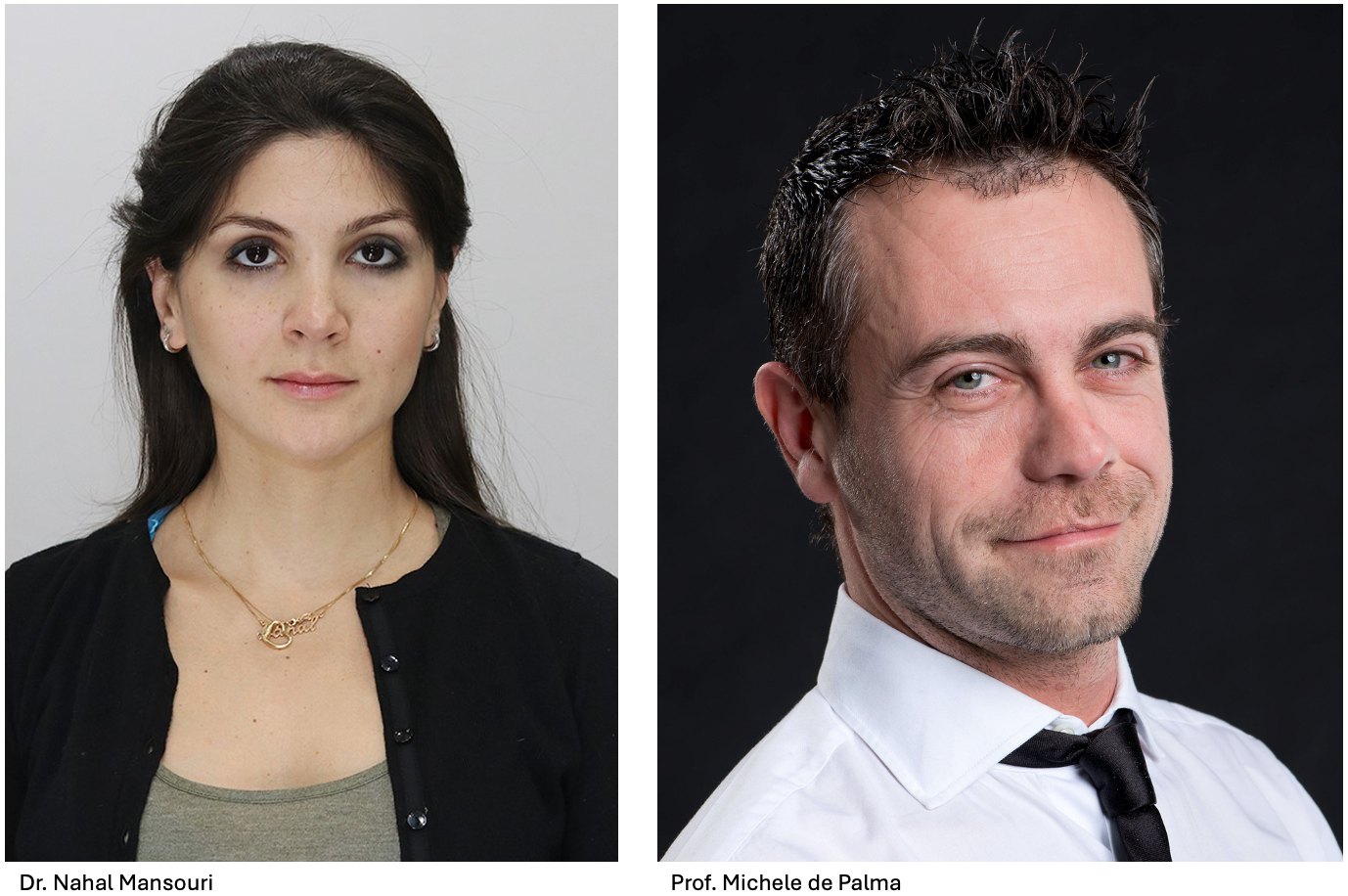Small cell lung cancer – Prof. Michele de Palma (EPFL) and Dr. Nahal Mansouri (CHUV)
Expanding the knowledge on the potential of cancer vaccines

Lung cancer is, to this day, the leading cause of cancer-associated deaths worldwide. There is a dire need for the development of more effective therapies, as lung tumors often become resistant to both conventional and targeted therapies, such as immunotherapies. This collaboration will work on advancing a promising cancer therapy referred to as dendritic cell (DC) vaccines.
DCs play a fundamental role in orchestrating the functions of our immune system. They present antigens on their surface that are recognized by other players in the immune response. Their biological role has long been exploited to develop DC vaccines for patients with cancer. The goal of a DC vaccine is to make the patient’s own immune system recognize and eliminate the cancer cells. More specifically, immature DCs are isolated from a patient with cancer and then exposed to tumor-associated antigens. After reaching full maturity, the cells are reintroduced in the patient to trigger an anti-tumor response. However, this traditional approach has several limitations and has yielded mixed clinical results.
This TANDEM project aims to advance the design of DC vaccines for lung cancer therapy. It exploits a novel type of DC, which is engineered in the laboratory to improve its ability to present tumor antigens to the immune system. This work is poised to improve the therapeutic potential of DC vaccines and will hopefully provide a new treatment strategy for lung cancer patients.

